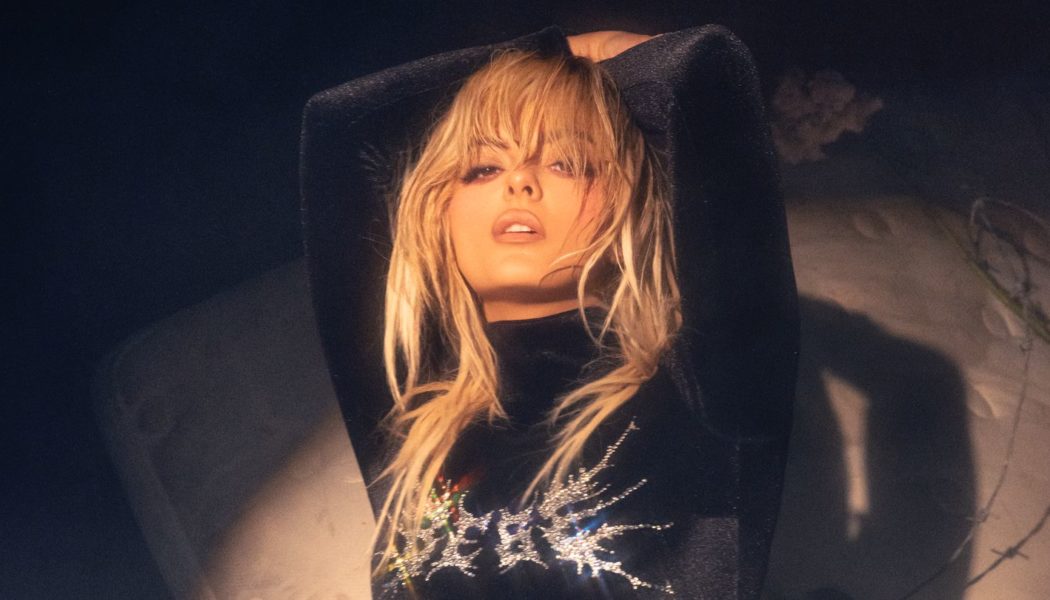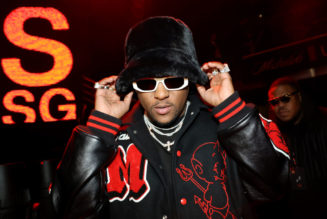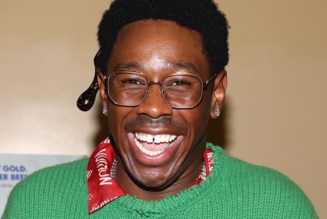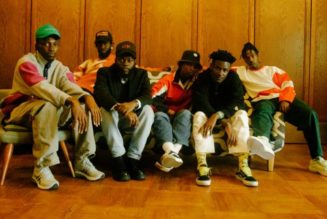
By Jack Irvin
As Bebe Rexha settles into a Zoom call from her Los Angeles home, I preface our interview by letting her know it’s “for Rexhars and Bad Bitches only,” referencing a 2017 viral clip in which the pop star yells at “perverts” telling her to “take [her] clothes off” in the comments of an Instagram Live chat. “Yay! Finally,” Rexha says, unwrapping a Reese’s Peanut Butter Cup after a long day of press. “Now let’s get the real fucking talking out.”
Rexha isn’t afraid to say exactly what she’s thinking, and it shows in her songwriting. On confessional hits “I’m a Mess” and “Me, Myself & I” with G-Eazy, she sings candidly about her experiences with anxiety, depression, and self-acceptance. It also appears in her social media presence, which features equally candid and often unfiltered discourse with fans, as well as funny photos and clips that are frequent fodder for stan Twitter memes. Where some viral videos capture her making “power-bitch moves,” as when she’s caught confidently strutting in a bright red suit, others find her overcome with emotion: In one clip, she covers her face with her hands and cries during an interview. Rexha is well-aware of her tendency to freely express her thoughts and emotions, but how does she feel when these vulnerable moments are shared among the masses?
“I’ve seen them sometimes, like the one of me crying… [and] the ‘pervert’ one I know, but I didn’t know how big it became until I had people coming to my shows and saying it to me,” Rexha tells MTV News. “If I look good and it’s cute, yeah, I like it. But if I look like shit and they’re making fun of me, no.”
Prior to our conversation, Rexha didn’t know the “power bitch moves” video had made the rounds online, but with her sophomore LP Better Mistakes — her most liberated body of work to date — out in the world as of last week, she says the album certainly counts as one. “A power-bitch move to me is anything that requires putting yourself out there,” she says. “This album is a power-boss-bitch move.”
Better Mistakes comes nearly three years after the release of her debut album Expectations, a gap elongated by changes to the pop star’s team. (She signed to Salxco Management in September 2020.) As she began to craft the new project, Rexha wanted it to live in the same catchy, vulnerable realm of the self-deprecating “I’m a Mess,” which she feels “most connected to” of her catalog of hits. From there, she was inspired to write songs like the piano-driven, self-destructive “Sabotage” and rock-laced “Break My Heart Myself,” which opens the album with direct references to her experience living with bipolar disorder, taking Klonopin to remedy its symptoms, and fearing her own intrusive thoughts. Through her no-holds-barred lyricism and openness about her bipolar diagnosis, which she shared publicly in 2019, she’s always been honest with fans about her mental health. But now she’s letting listeners into her head like never before.
“When I was younger, I would have loved to have somebody to look up to that was open about [mental health], so I didn’t feel so alone,” she says. “It’s something that’ll always be a part of me, and I was thinking if I’m real with my fans, maybe there’s somebody out there who will listen to it and it’ll help them.”
Writing about these often-taboo topics comes easily to Rexha, a seasoned songwriter who’s also penned hits for superstar artists like Selena Gomez (“Like a Champion,” “Crowded Room”), as well as Eminem and Rihanna (“The Monster”). However, she still gets pangs of nervousness before releasing such intimate tracks about her mental health due to how they affect one listener in particular. “My mother, for some reason, feels like she made a mistake and fucked up in some way,” she says. Rexha wrote the Queen-sampling track “Mama” about her mom’s endless support. “I love her to this day. She gets a little upset when I put songs out [about my mental health], but I’m a grown woman now, and people need real right now.”
Rexha was nearly done with Better Mistakes prior to the pandemic, but after its onset, she decided to take more time to sit with it. Then, she started to feel “really bored” and tired of the compositions’ gloomy nature, so she added songs like the club-ready “Sacrifice” and trap crooner “Amore.” These brought bursts of positive, upbeat energy to the project’s eclectic set of pop, dance, hip-hop, rock, and alternative sounds. “I’m like genre-fluid or something,” Rexha declares. “It’s painful for somebody to be like, ‘You have to write one whole album and have it all be one genre.’ Like, I would literally lose my shit.”
One of the only genres she opted to avoid on the album is country, despite the fact that her 2017 single “Meant to Be” with Florida Georgia Line is her biggest hit, with 50 weeks at No. 1 on country radio, a Grammy nomination, and more recently, a Diamond certification from the RIAA for 10 million units sold. “That was a song that lives on its own,” she says, noting that she “wasn’t in the mood” to further explore play with its stripped, plucky tunes this time around, though she’s considering a Nashville writing trip in the near future. In many ways, her foray into Western styles was unexpected, as was the monstrous success of “Meant to Be.” “We did not follow any rules whatsoever,” she adds. “I don’t like following rules.”
She shared the same sentiment working on Better Mistakes by doing what comes naturally to her, and has just so happened to score her many — often unpredictable — hits in the past: collaborating with other musicians. She gathered a group of artists she admires and who simply “felt right” for the record, including Travis Barker (“Break My Heart Myself”), Ty Dolla $ign and Trevor Daniel (“My Dear Love”), Lil Uzi Vert (“Die For a Man”), Doja Cat (“Baby I’m Jealous”), Pink Sweat$ and Lunay (“On the Go”), and Rick Ross (“Amore”). Flexing her curatorial skills, the inclusion of such high-profile features makes the album sound like a top Spotify playlist, a savvy move in today’s listening climate.
Rexha also wants to uplift other artists with her work, hosting the annual Women in Harmony events to bring together women in the music industry to discuss their experiences. She hopes to collaborate with many more women in the future, and an appearance by Doja Cat on Better Mistakes (“I love her vibe. She’s an amazing person,” she says) is a start. “With girls, there’s still a sense of competitiveness in this industry, and it’s really sad,” she says. “I see a lot of other artists who also say they support women, and I know them behind the scenes, and they don’t. They’re not what they say they are, and that’s really shitty.”
Though Rexha still experiences “moments of self-doubt,” she says she’s “definitely in a better place” with her mental health today than she was while writing Better Mistakes. Yet even the fact that she’s also been in a relationship with filmmaker Keyan Safyari since last year doesn’t drive the musician to write about bright subjects like love. Instead, the album features lyrics that chronicle feelings of emptiness and bring a touch of cheekiness to emotional highs and lows (“I know that it’s crazy to die for you, but I’d do it tonight,” she sings on “Death Row.”), making for a dark, edgy listen. “I thrive in darker, minor keys, and darker lyrics and concepts,” she says. “I’m good with my love life, but I can’t write a love song. It’s really hard for me.”
While she felt some of the classic sophomore-album pressure to recapture the success of her debut, above all else Rexha set out to create each song on Better Mistakes without creative restraint or extreme-hit potential in mind. “Right now, it’s more about writing songs that make me happy, and to really keep defining who I am as an artist,” she says. “Then if the song blows up, that’s even more incredible. But if not, it doesn’t define me as a human.” Now that the album’s out, however, how does Rexha want to be defined as an artist? “Like I do whatever the fuck I want,” she says. “I want people to be like, ‘What’s Bebe going to do next?’”










